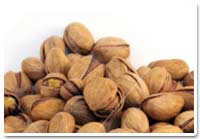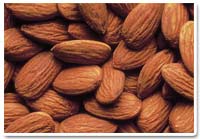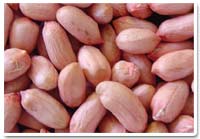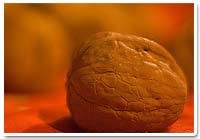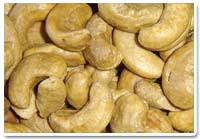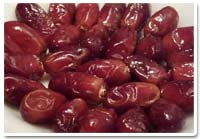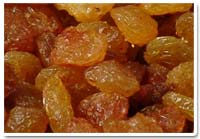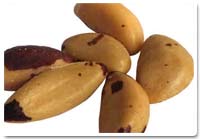Sunflower Kernels
What are Sunflower Kernels?
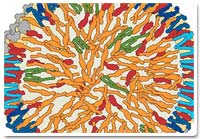
These sunflower kernels/seeds are usually eaten as a nutritious snack than as part of a meal. They can also be used as garnishes or ingredients in various recipes. The seeds may be sold as in-shell seeds or dehulled kernels. The seeds can also be sprouted and eaten in salads. Recently, sunflower seeds became available in flavors such as barbeque, sour cream & onion, cajun, ranch and hot & spicy.
A Brief Historical Background
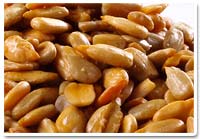
Europeans apparently first became acquainted with sunflower seeds in the 16th century, when Spanish explorers brought them to the continent from the Americas. Planted first in Spain for decoration, sunflower use gradually spread north and east through the rest of Europe. At the time, sunflower was seen more as a curiosity than a food or oil source and was often used for medicinal purposes.
It was not until the late 1800s when the flower was introduced to Russia that the sunflower became a food crop. In 1860, Russian farmers made significant improvements in the way that the sunflower was cultivated. During this time, they became the world’s largest producer of sunflower seeds. Today, they remain a world leader along with Europe, Argentina, and the United States.
People within all social and income levels eat them. The main reasons for the popularity of sunflower seeds is the tradition of eating them and the economical price in relation to other available nuts.
Presently, sunflower seeds are primarily consumed at home. Most of them are eaten while watching television, one seed at a time. One of the most common times to eat sunflower seeds is during soccer matches.
Selection and Storage
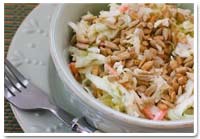
When purchasing shelled seeds, one must avoid those that appear yellowish in color as they have probably gone rancid. In addition, if one is purchasing sunflower seeds from a bulk bin, smell them to ensure that they are still fresh and have not rotted.
Health and Nutrition – Brighten the Nutritional Quality of your diet with a Daily Dose of Sunflower Kernels/Seeds
Nutrition scientists are realizing that we should pay more attention to our daily intake of complex plant foods like seeds, nuts and whole grains.A move towards whole foods, like sunflower seeds,will addnutrients to your diet in a flash. Sunflower seeds/kernels contain good amount of plant chemicals and phytochemicals which are supposedly good for our health. Fats, protein and fiber, plus important nutrients like vitamin E, selenium, copper, zinc, folate, iron and phytochemicals come wrapped up in this small and perhaps unsuspected package – a sunflower seed. Just one ounce of these seeds every day can improve the nutritional quality of your diet.
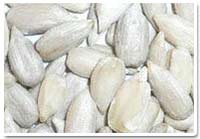
- Protein supplies amino acids, the building blocks that build, maintain and repair body tissues. Sunflower seeds are a good source of plant protein, providing 6 grams or 12% of the Daily Value per ounce.
- Vitamin E is an antioxidant that may protect against heart disease by getting rid of harmful molecules called free radicals that can lead to atherosclerosis.Sunflower seeds are the best whole food source of vitamin E.Sunflower seeds are an excellent source of vitamin E. Just one ounce of sunflower seeds provides 76% of the Recommended Dietary Allowance for vitamin E.
- Selenium works with vitamin E as an antioxidant and protects cells from damage that may lead to cancer, heart disease, and other health problems.Although there is no Daily Value for selenium, nutrition scientists recognize its importance to health and a Recommended Dietary Allowance (RDA) has been established. The selenium in one ounce of sunflower seeds provides about 24% of the RDA for men and 31% of the RDA for women.
- Copper helps your body carry oxygen to red blood cells and produce energy in the cells. Copper is also a vital part of some antioxidant enzymes in the body, thus protecting you from oxidative stress.While a copper deficiency is rare, this trace mineral is essential to an energy-rich life. You’ll find about 25% of the Daily Value for copper in one ounce of sunflower seeds.
- Folate, a B vitamin, plays an essential role in making new body cells by helping to form the DNA and RNA that contain each cell’s “master plan” for reproduction. This is why folate is so important for pregnant women and the development of babies. Folate also pairs with vitamin B-12 to help form hemoglobin in red blood cells,which allows them to carry optimal amounts of oxygen. Folate is involved in the removal of homocysteine, an amino acid thought to promote heart disease, from the blood.A large population study from Harvard University shows an association between higher intakes of folate and lower risk of heart disease. Sunflower seeds are a good source of folate, supplying 17% of the Daily Value in a one-ounce serving.
- A one-ounce serving of sunflower seeds contains 20% of the Daily Value for pantothenic acid, 11% for vitamin B6, 6% for thiamin and 6% for niacin. Zinc is a mineral that is vital for keeping your immune system strong, fending off infections and healing wounds. A one-ounce serving of sunflower seeds is a good source of zinc, providing 10% of the Daily Value.
- Iron is essential in carrying oxygen from your lungs, through your blood, and to every body cell. Iron deficiency, which can lead to anemia, fatigue and infection, is more common among women who experience regular menstrual loss. One ounce of sunflower seeds is a good source of iron, providing 10% of the Daily Value.
- Fiber – the indigestible part of plant foods – promotes good health by helping to lower blood cholesterol, manage blood glucose and prevent constipation. Sunflower seeds are fiber-filled foods with 2 grams of fiber per one-ounce serving, putting you well on your way to your daily fiber goal.
Serving Tips
- Add sunflower seeds to your favorite tuna, chicken or turkey salad recipe
- Garnish mixed green salads with sunflower seeds
- Adding sunflower seeds to scrambled eggs will give them a unique taste and texture
- Use fine ground sunflower seeds to dust your meats with in place of flour
- Sprinkle sunflower seeds onto hot and cold cereals.
A recipe for roasted Sunflower seeds:
- Cover unshelled seeds with salt water
- Use 1/4 to 1/2 cup of salt per two quarts of water
- Bring to a boil and simmer for two hours
- Drain and dry on paper towels/Seeds may also be soaked overnight in a salt solution.
- Roast Sunflower seeds in a shallow pan at 300 degrees for 30 to 40 minutes or until golden brown, stirring occasionally
- After removing from the oven, stir in one teaspoon of melted butter or margarine for every cup of seeds
- Sprinkle on dry dill, salt & pepper, or powdered popcorn flavorings
- Cool on a paper towel.






